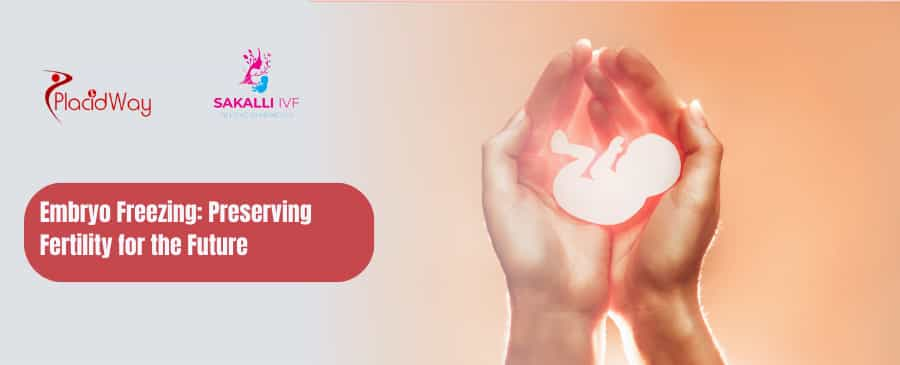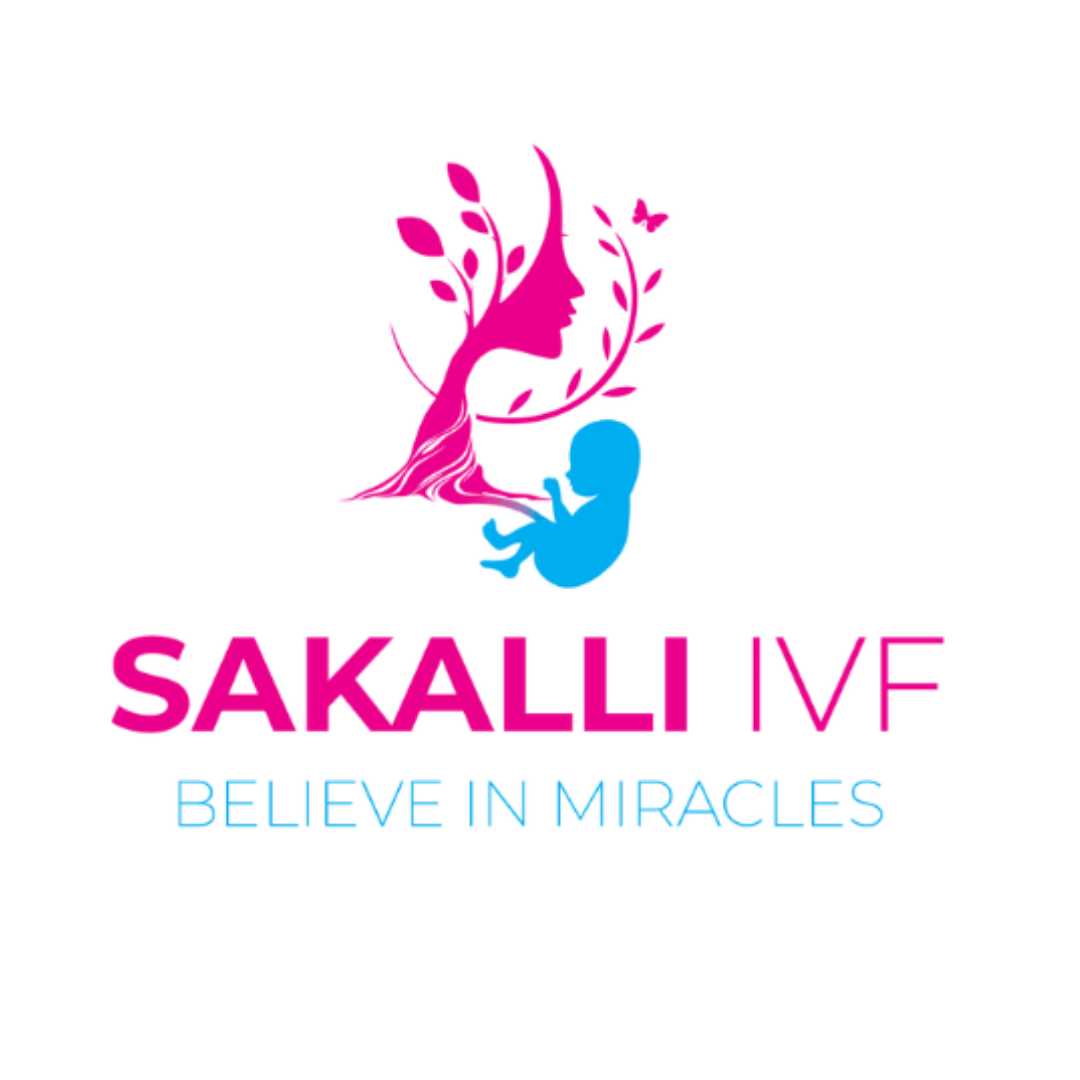
What is Embryo Freezing?
Embryo freezing involves the collection of eggs from the ovaries by a reproductive health specialist, the fertilization of the collected eggs in a laboratory setting by partner or donor sperm to form embryos, allowing the embryos to grow for a few days in the lab, followed by the freezing process.
Once thawed, the fertilized embryos can be implanted into the egg owner or another prospective mother. Embryo transfers using thawed embryos are commonly used today, and the pregnancy rates after transfer are similar or sometimes even higher than those using fresh embryos.
Why Should I Choose to Have Frozen Embryos?
A successful in vitro fertilization (IVF) cycle can result in multiple embryos being formed in the lab, and some couples might consider freezing the extra embryos for future family planning. Embryo freezing can also help preserve fertility for the future.
Couples or individual partners might request embryo freezing if they have undergone hormone therapy, cancer treatments, gender confirmation surgery, or any other medical intervention that might affect their fertility.
For a potential second pregnancy, sibling embryos can be kept frozen, making the process more practical. These frozen embryos can be thawed and used in the future, eliminating the need for repetitive treatments and providing a chance for subsequent pregnancies.
This approach offers couples more flexibility and simplifies the treatment process. Embryos subjected to the NGS test are frozen because obtaining the results often takes longer than a week. In some cases, your reproductive health specialist may recommend freezing your embryos to avoid a clinical scenario known as ovarian hyperstimulation syndrome that can arise after pregnancy.
How Do I Prepare to Have Frozen Embryos?
Before starting the egg collection cycle to create embryos, your doctor will request analysis of your blood hormone levels and will inspect your ovaries using an ultrasound to ensure they are ready for stimulation. To ensure the development and easy collection of eggs, your doctor might prescribe certain medications. The fertility specialist will carefully monitor your response to these drugs and will proceed with egg collection at the right time.
The Embryo Freezing Process (Cryopreservation)
When your fertility specialist determines you're ready for egg collection, the eggs will be harvested in a minor outpatient procedure under mild sedation. Using ultrasound imaging to direct a hollow needle and catheter from the vaginal wall to the ovary, several eggs are collected, one at a time. The number of eggs retrieved depends on your response to the hormone medications.
Eggs can be frozen without being fertilized. To create an embryo (fertilized egg), an embryologist fertilizes one or more of the collected eggs with a partner's or donor's sperm. The embryo is observed as it grows in a petri dish in a laboratory setting over five to seven days. At this stage, samples can be taken from the embryos for PGT or NGS genetic testing, especially if it is known that the egg or sperm donor is a carrier for specific genetic conditions.
Embryologists grade the embryos to determine which ones have the highest likelihood of successfully implanting and growing.
What’s the Likelihood of Achieving a Pregnancy from Frozen Embryos?
The chance of achieving a pregnancy through embryo transfer largely depends on the age of the egg used to create the embryo. Eggs retrieved from women under 35 have a higher chance of leading to a successful pregnancy through IVF compared to eggs from older women. Over 95% of frozen embryos survive the thawing process.
In short, the success rates for frozen and fresh embryos are similar, but other factors, like age, can influence success.
Benefits of Embryo Freezing
-
Preserves Fertility: Freezing embryos helps individuals and couples preserve their fertility for future use, especially if they need to delay pregnancy for personal or medical reasons.
-
Reduced Stress and Costs for Future Pregnancies: Using frozen embryos for future pregnancies eliminates the need to undergo another egg retrieval and IVF cycle, saving time, money, and reducing emotional strain.
-
Increased Flexibility: Couples can plan future pregnancies at a time that works best for them, without the need for new IVF cycles.
-
Higher Success Rates: The process helps increase the chances of successful pregnancy and delivery with fewer treatment cycles.
Frequently Asked Questions (FAQs)
1. How long can frozen embryos be stored?
Frozen embryos can be stored indefinitely, though most fertility clinics recommend using them within 5-10 years for the best chances of successful pregnancy. Regular storage updates and monitoring are advised.
2. How much does embryo freezing cost?
The cost of embryo freezing varies depending on the clinic and location. It typically includes egg retrieval, fertilization, freezing, and storage fees. Make sure to inquire about all associated costs before proceeding.
3. Are frozen embryos as effective as fresh embryos?
Yes, studies show that the success rates for pregnancies from frozen embryos are comparable to those from fresh embryos. Factors such as age and embryo quality still play a significant role.
4. Can I freeze embryos without undergoing IVF?
No, embryos must be fertilized before they can be frozen. This requires undergoing IVF, where eggs are fertilized with sperm to form embryos, which are then frozen for future use.
5. Will freezing embryos affect their health?
Modern freezing techniques like vitrification have a high success rate with minimal damage to the embryos. Properly frozen embryos have excellent survival rates and maintain their potential for a successful pregnancy.
6. Can I select the gender of the embryo during freezing?
Gender selection is possible through genetic testing, such as PGT (Preimplantation Genetic Testing). However, in many countries, gender selection is only allowed for medical reasons. Always check with your clinic regarding the regulations in your area.
7. How long does the freezing process take?
The process of freezing embryos, including fertilization, embryo culture, and freezing, typically takes about 5-7 days. The time frame for storage can extend for years, depending on the patient's preferences and the clinic's storage policies.
8. What happens if I don’t use all my frozen embryos?
Unused embryos can remain stored for future use. If you no longer need them, most clinics offer options for donating them to another couple, research, or discarding them in a respectful and ethical manner.
Get Free Advice Today
Are you considering embryo freezing as a way to preserve your fertility or plan for future pregnancies? Contact us today at Sakalli IVF for expert guidance and high-quality fertility preservation services. Our team is here to support you with advanced techniques and personalized care, ensuring that you have the best chance for success when you're ready to grow your family.






.png)
.png)
.png)

.png)

.png)
.png)



Share this listing